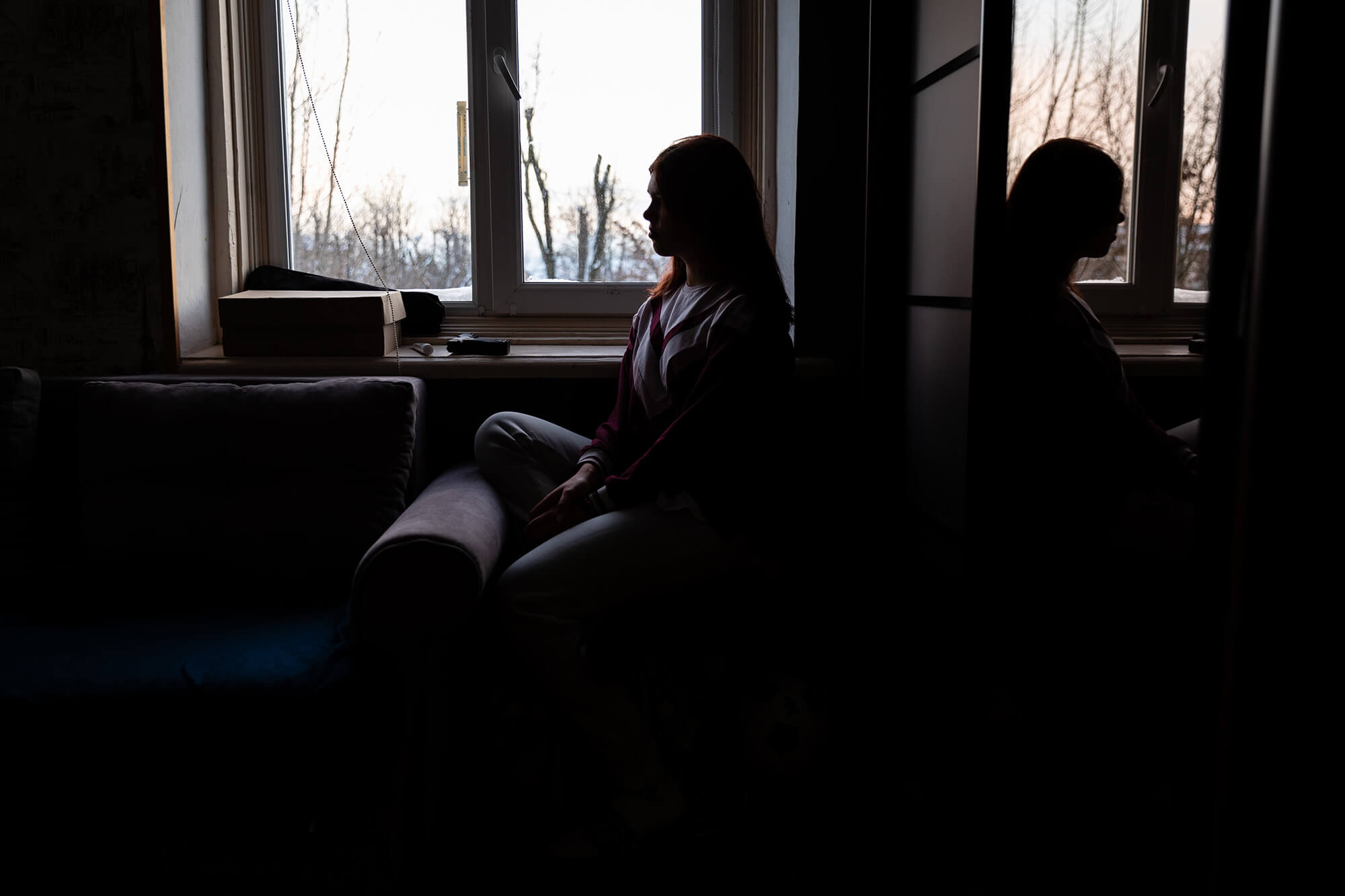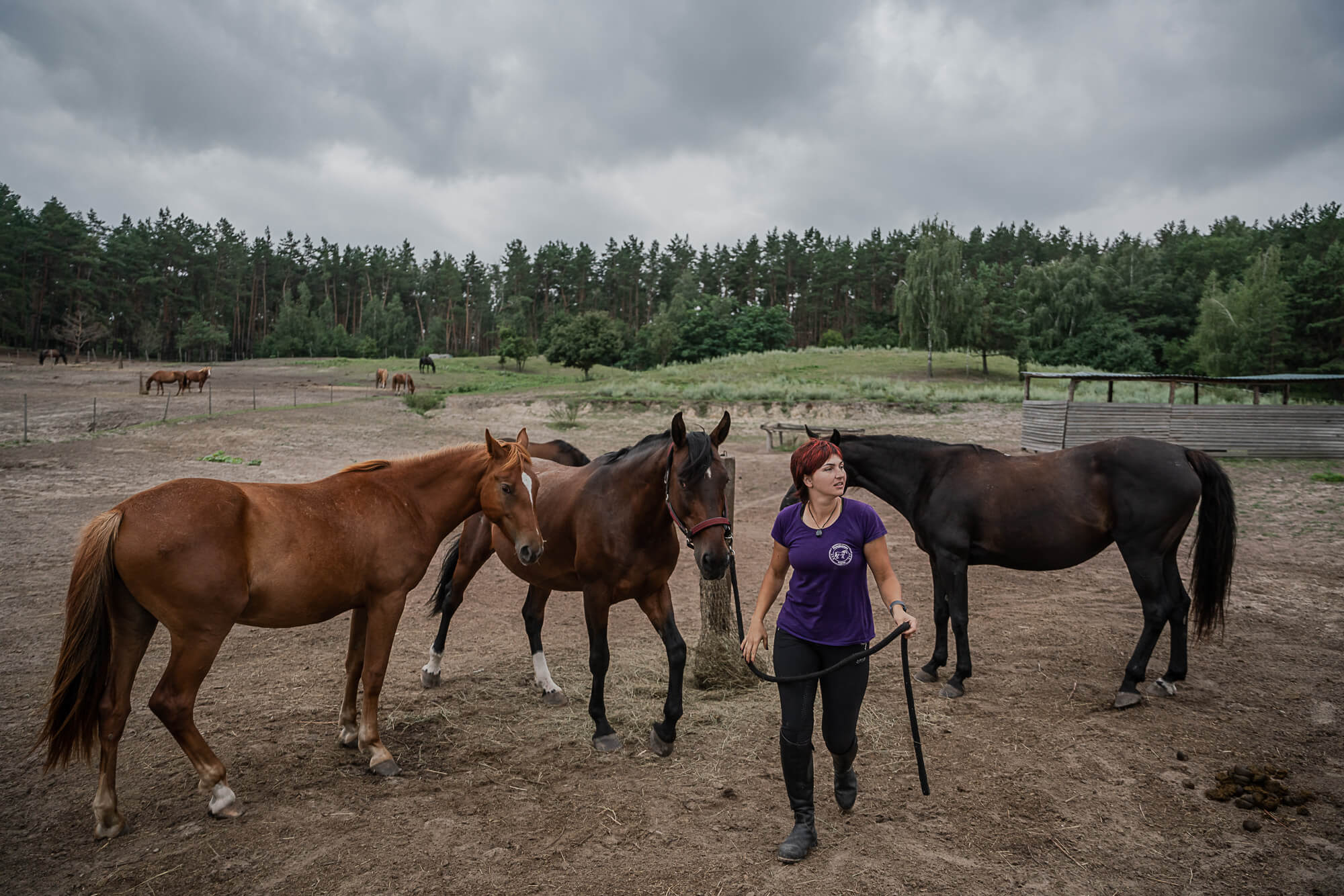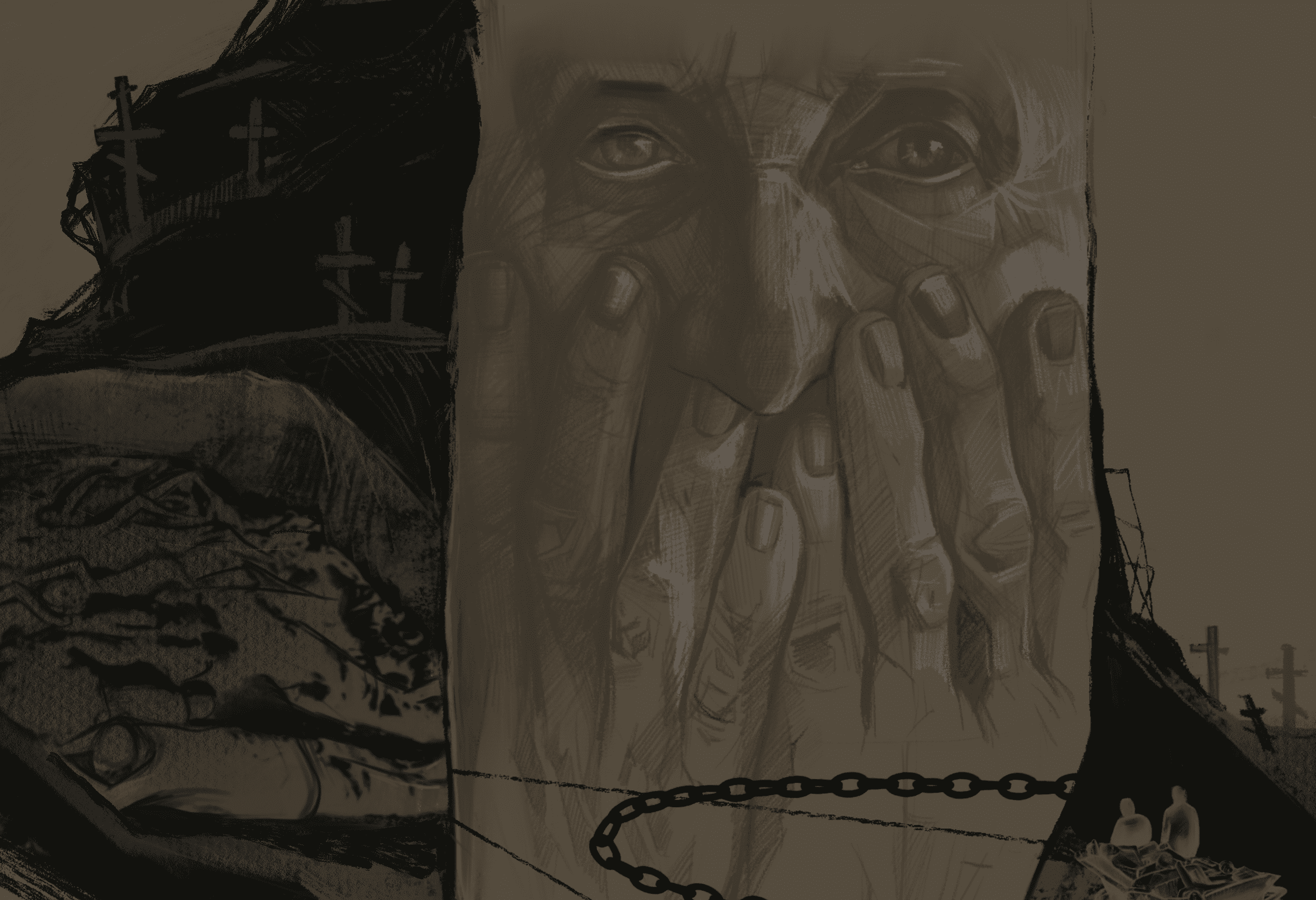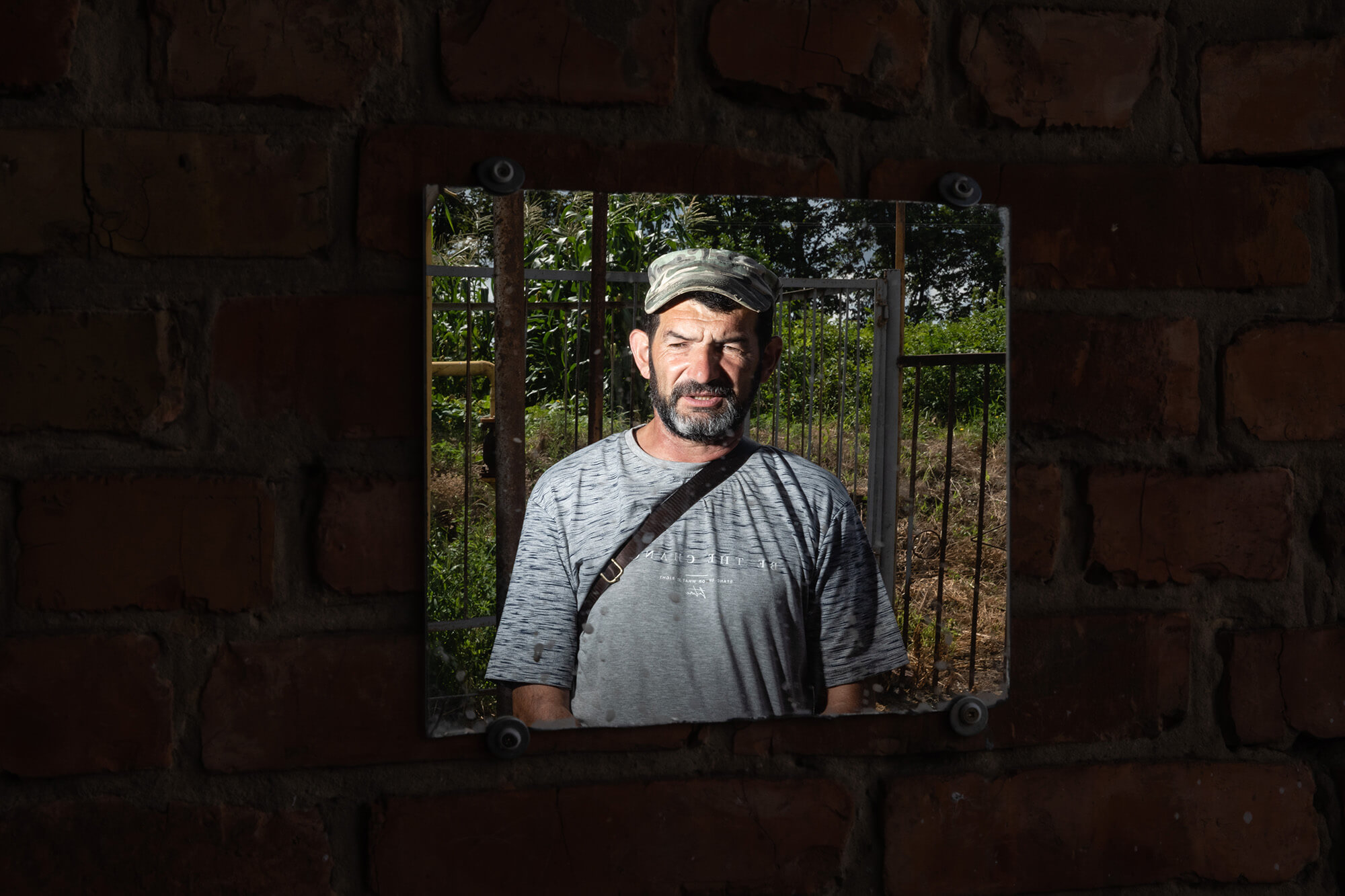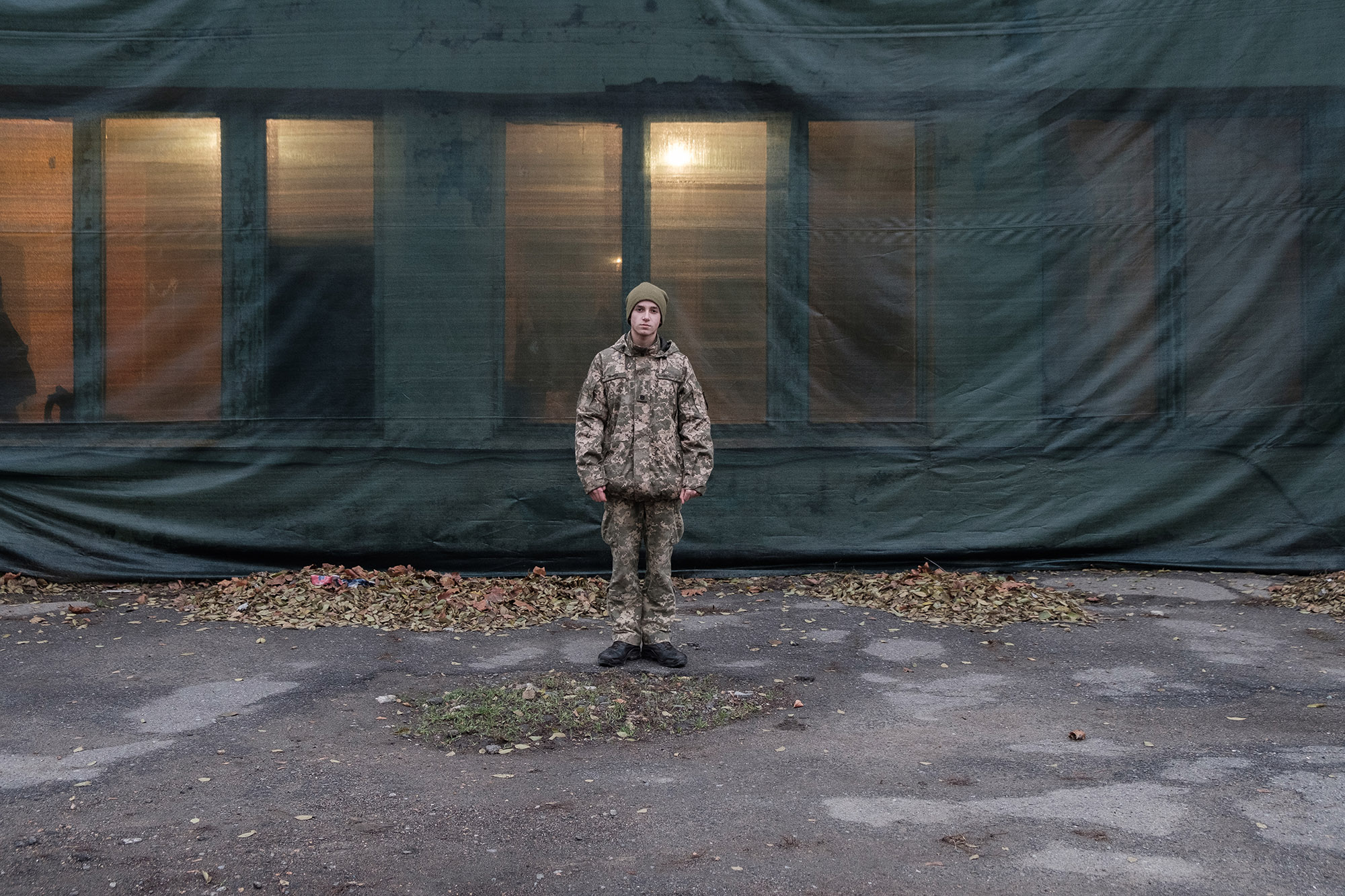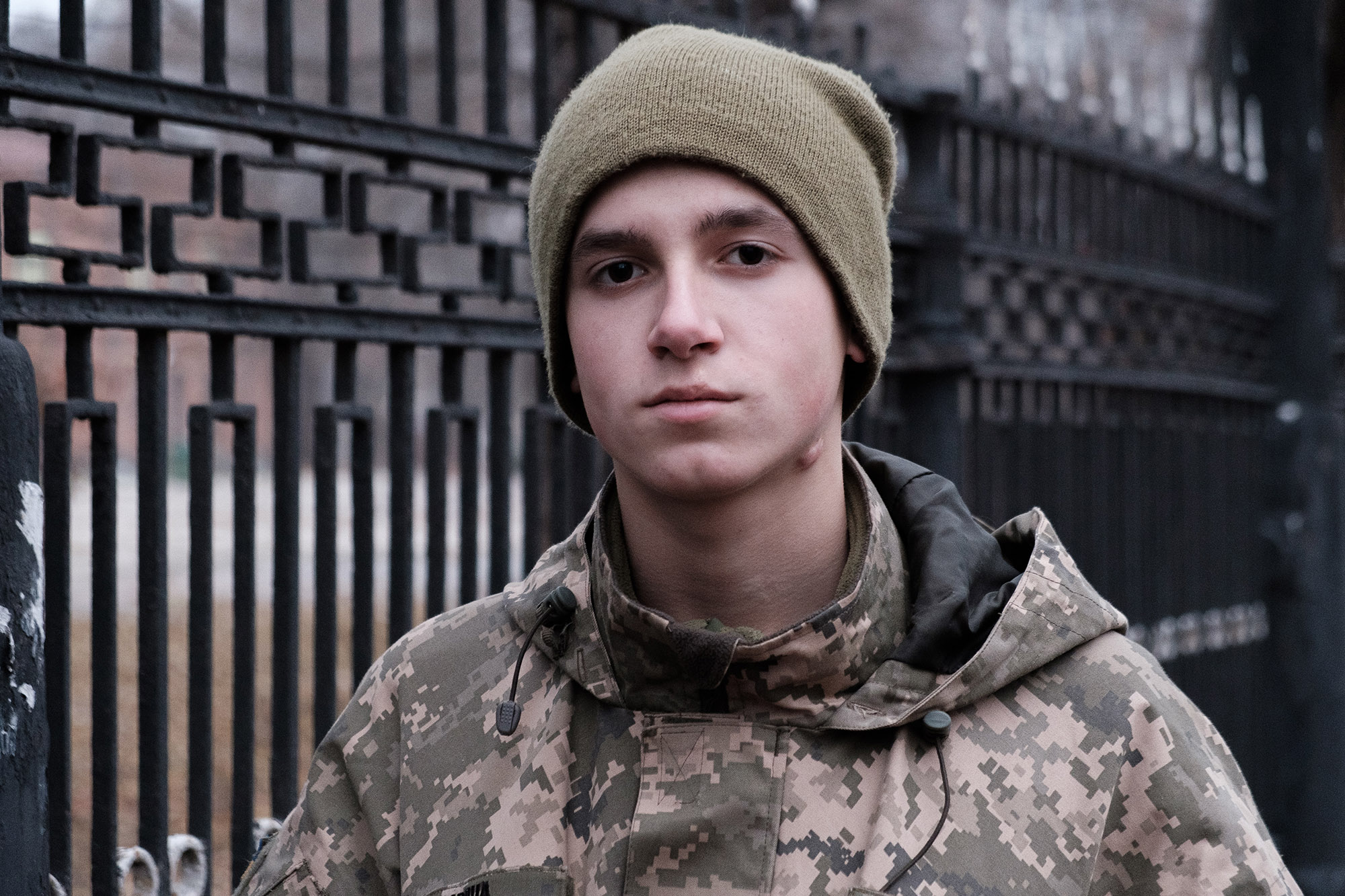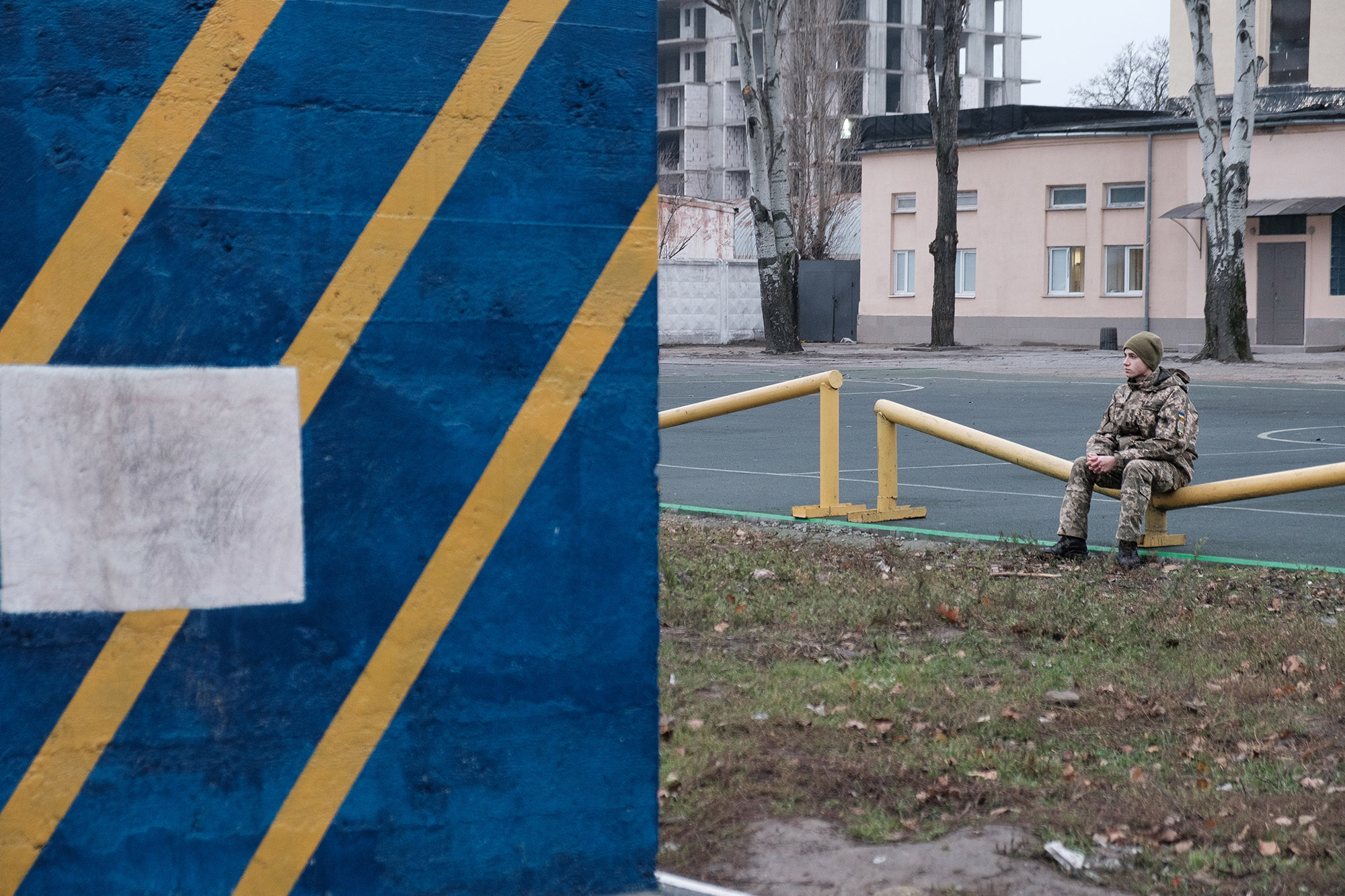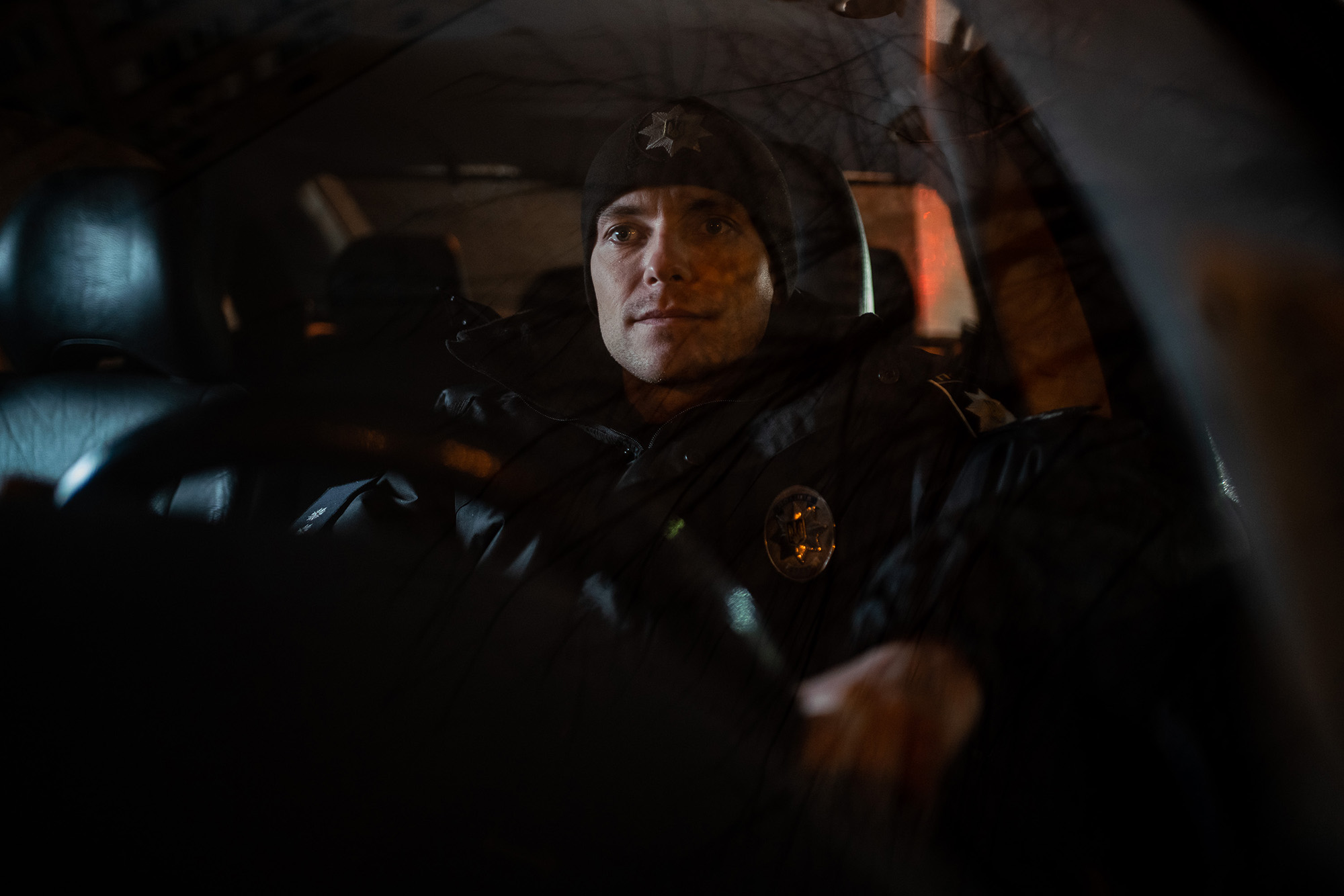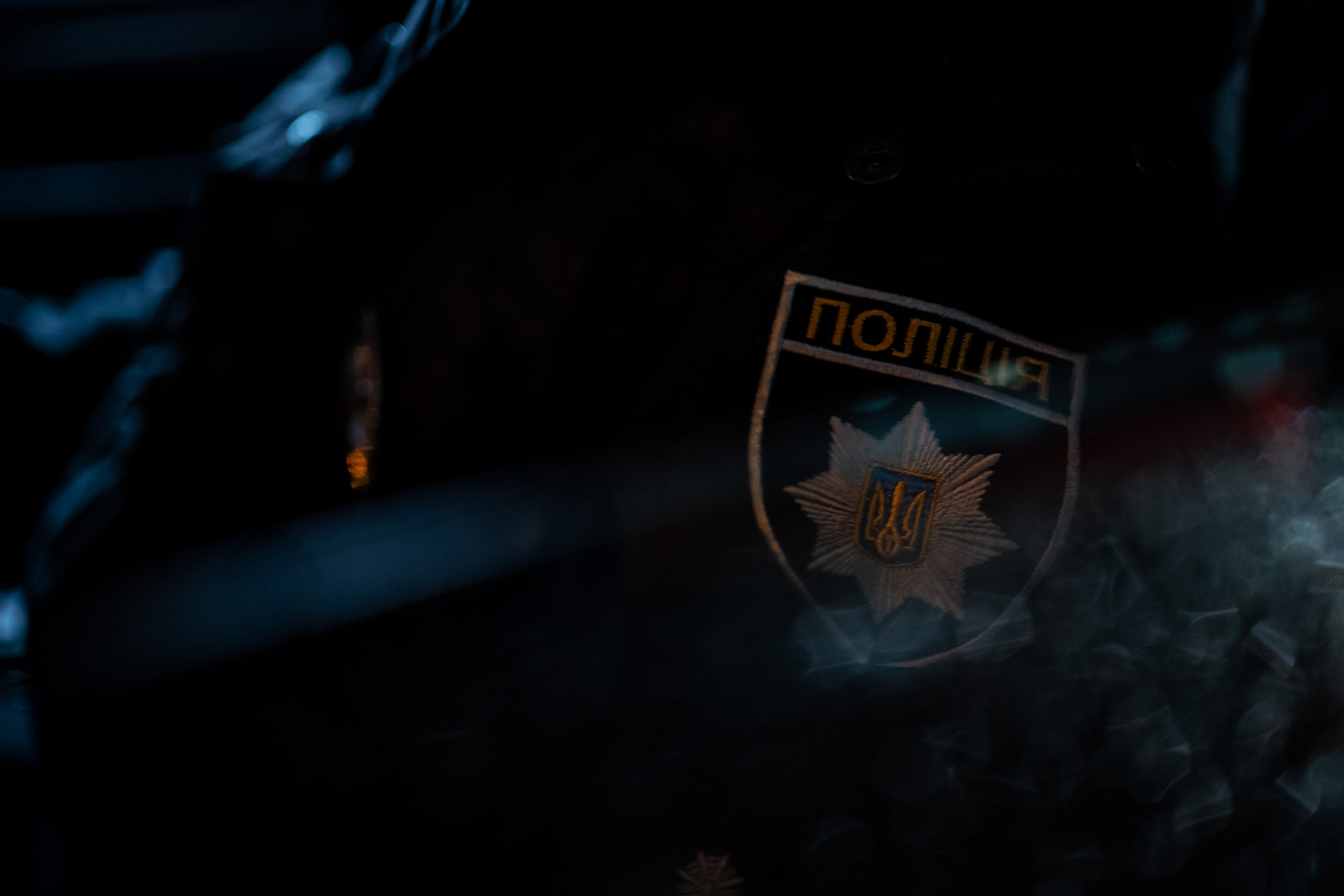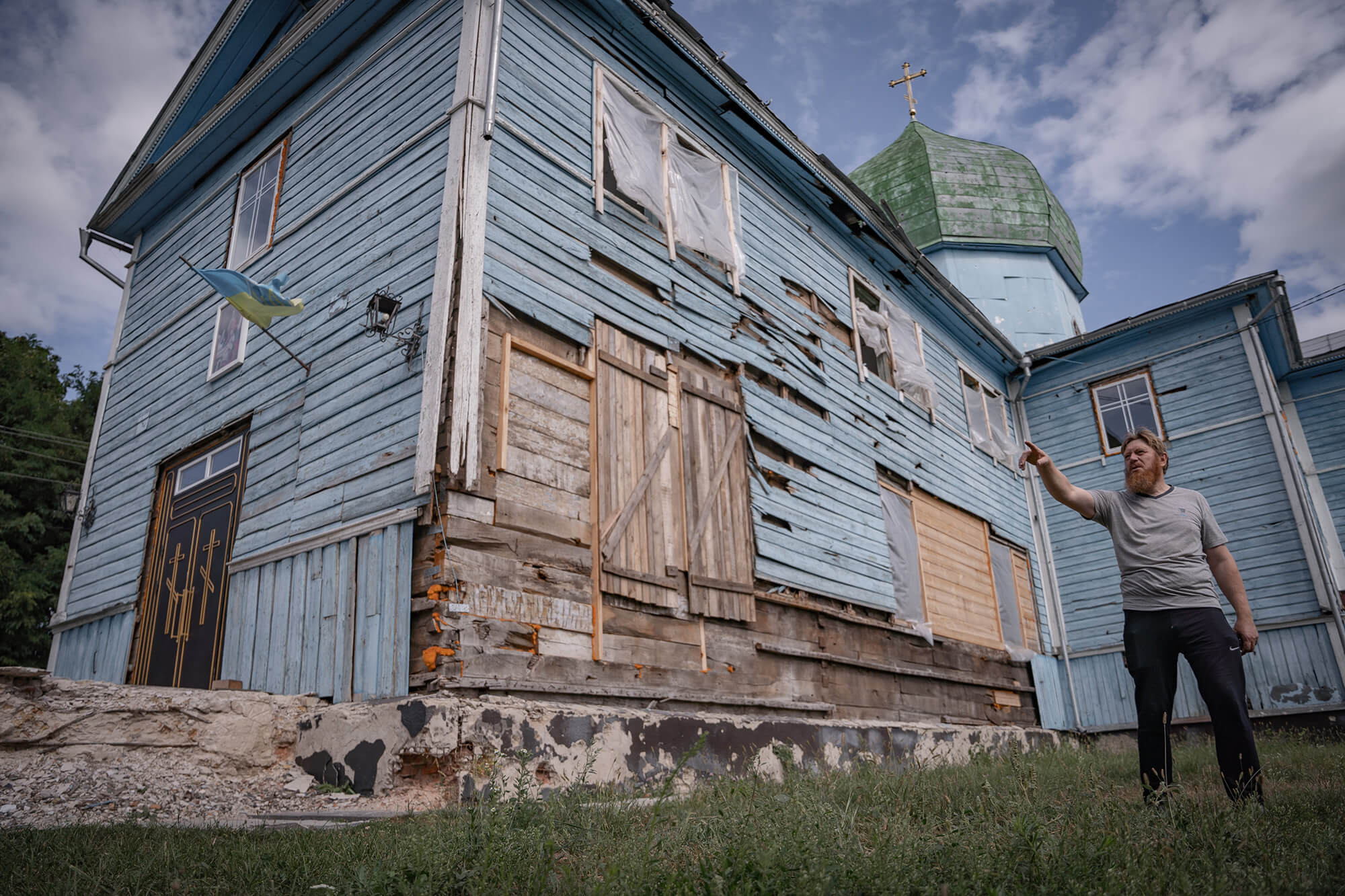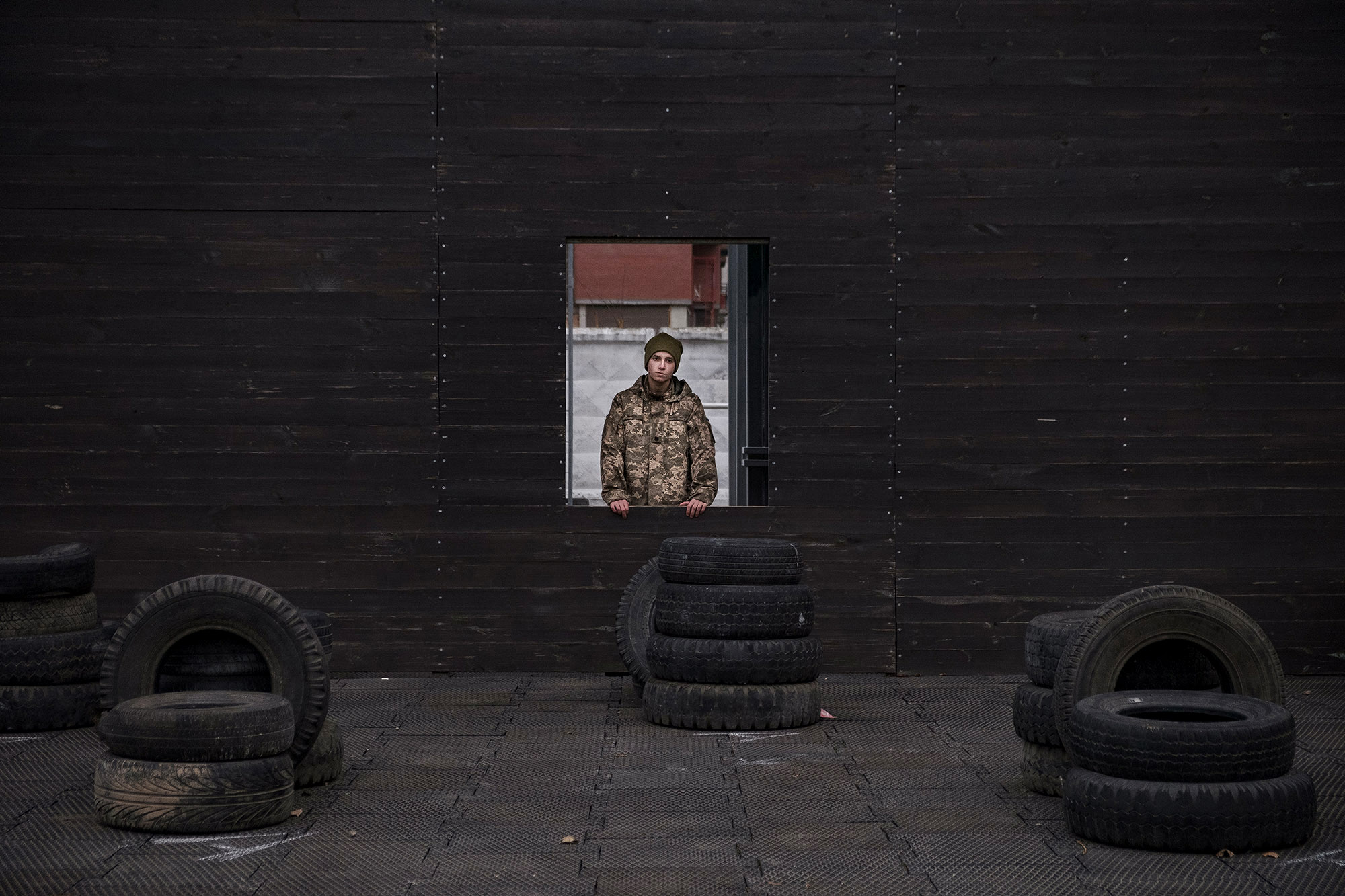
Humans Among Us
A 16-year-old boy rescued five children in a shell explosion and bid farewell to his dream of becoming a military scout. A 90-year-old lady was hiding two wounded Ukrainian servicemen in the center of occupied Ilovaisk and saved their lives with her kindness. Several metropolitan patrol officers, moved by the story of a single mother, conducted nearly a special operation to help her and her child get shelter.
They do not know each other. But they have something in common—the ability to act and the art of being human.
In anticipation of the lockdown and among the headlines driving people to panic, Reporters tells three unrelated stories about moral courage and humanity—a seemingly simple, but in fact complex human quality.
Sashko
Slowly. Step by step. In one hand he holds a mobile phone, while the other is swaying helplessly, as if foreign. He walks without looking at his feet, leaving traces of blood from his mutilated right hand on the dusty road.
Oleksandr Harkusha, now a 17-year-old cadet of the Odesa Military Academy, remembers every second of that night, July 1, 2019.
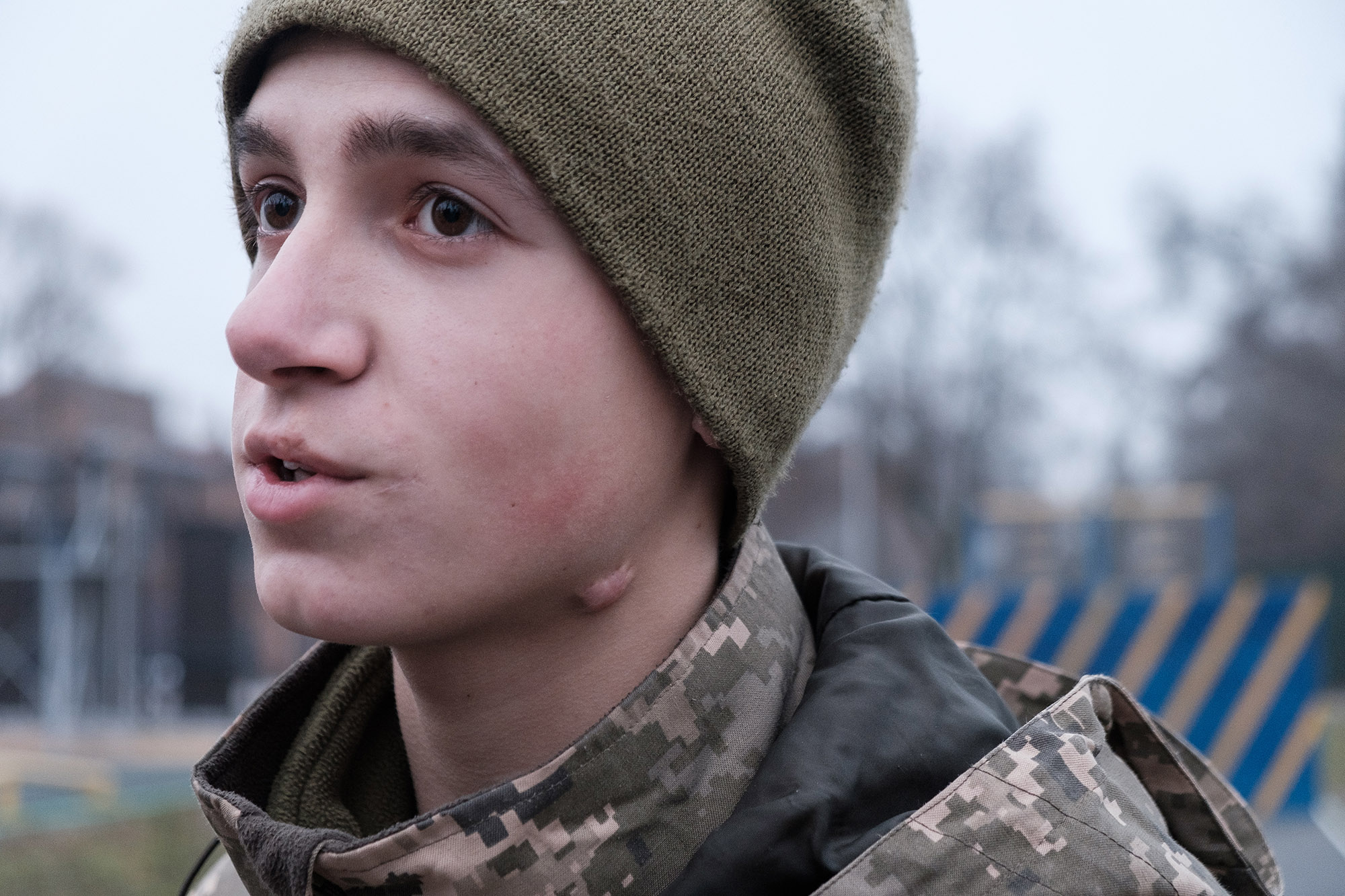
“The only bit I don’t remember was between half past eight in the evening and half past four in the morning when they operated on me,” he says. “Everything else is etched in my memory and will now probably stay with me forever.”
Sasha dreamed of joining the military from the age of 11—since his father, Petro Harkusha, packed his backpack and volunteered to fight in Donbas. The man was assigned to the 74th separate reconnaissance battalion: as a driver and mechanic he used to go, among other places, to Donetsk airport.
“Father did not tell me about the war,” Sasha says. “In 2015, he said something like ‘Just forget about it,’ trying to avoid such conversations at all cost. When he signed a contract after the mobilization and went back again, nothing had changed: ‘Forget about it,’ he snapped. And that was it.”
Perhaps the only thing Peter talked about at home was mine safety. On the front line, the man saw ammunition of all kinds. He realized that they could all easily get to peaceful cities. So, despite his intention to avoid the topic of the east, he told his son in detail about what shells are like, how they work and what to do if he suddenly finds himself near an explosive.
“In the end that knowledge saved my life and the lives of five other children,” says the young man sternly.
Last summer, Sasha, then a student at the Kryvyi Rih Sports Boarding Lyceum, spent time at home in the village of Pashena Balka near Dnipro. During the day he used to do things around the house, and later, at around eight in the evening, he would go out for a walk with his girlfriend. Sasha can’t even remember why, but he was free earlier that July day. He took a long walk around the neighborhood, and met up with some friends.
“We were walking down the road with them, past the playground. My attention was immediately drawn to the children who were сrowding there, but my friends were just talking among themselves. Yet, by some miracle, I managed to notice something that looked like a piece of ammunition from my father’s stories. As I approached, I saw that I was not mistaken. My dad had taught me: if the percussion cap is not broken—the mine will not detonate. This one, as it seemed to me at first glance, was intact. But the mine still had to be taken away. I wanted to drive the kids away and call the adults, but, unfortunately, never got a chance.”
That sound was like the clicking of a lighter: not too loud, but very familiar. In a moment, when Sasha looked away, one of the children managed to set fire to the mine.
By mere instinct, the young man rushed to grab the ammunition, shielded a younger girl, swung his arm to throw the mine away from the playground. . . And then—an explosion, smoke, and screams.

“My ears rang, but I could hear the children screaming loudly. I looked at my right hand—the palm was crushed. My friend grabbed the severed phalanx, handed it to me, and I shouted: ‘No, don’t touch it!’ I thought to myself: ‘I have to go home.’ So I got up and hobbled away. Somewhere along the way I bumped into a volunteer friend. She asked me what had happened. I said a mine had detonated. I don’t remember where my strength came from, but I called my father and told him I was in trouble. Told him where I was. Dad ran to me with some Butorphanol, a strong painkiller he had in his army first aid kit. He gave me an injection, and then muttered: ‘Fuck, the guts.’ I looked down and realized that my intestine was on the outside—a shrapnel had ripped my stomach open.”
An ambulance arrived in Pashena Balka in some forty minutes. During the surgery, which lasted all night, Sasha suffered three cardiac arrests. Leaving the operating room the doctors told the father: “You should pray. Your kid is in a coma. We cannot guarantee that he will survive.”
“It was a miracle that I woke up a day later. I even started talking, can you imagine? They pulled fragments out of me, sewed up a part of my finger, which my friend picked up and which I can hardly feel at the moment. And they gave me a stoma—a special hole in the abdomen with a tube to remove human waste. I had it for more than a year—about a month ago the stoma was finally removed.”
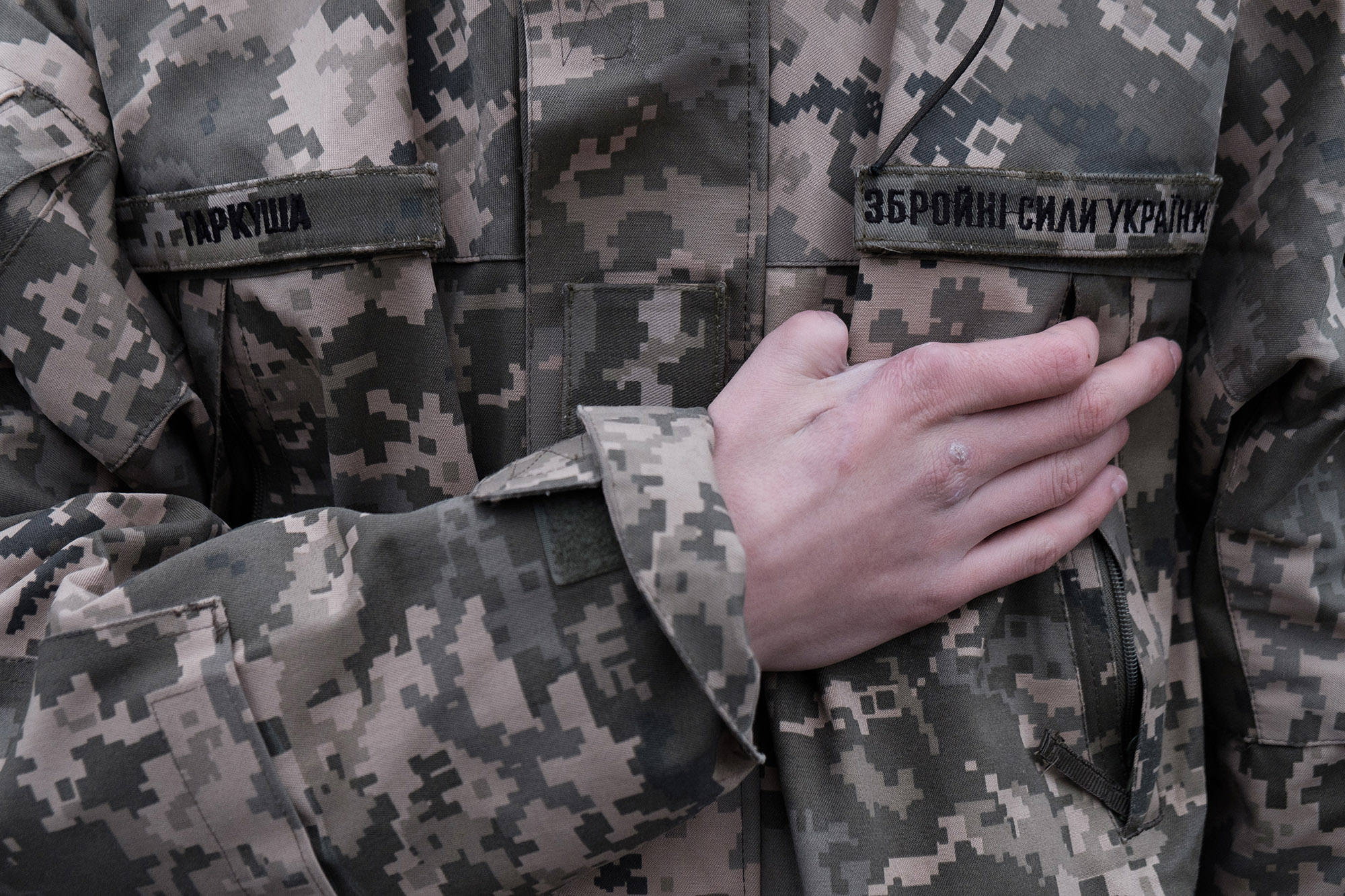
A psychologist helped Oleksandr overcome the tragedy and come to terms with the fact that he is unlikely to be able to become a scout now. Despite the high-profile nature of the incident, in the case file on the illegal storage of ammunition, until recently the young man was considered a witness, not a victim. He says that his lawyers helped to change his status, and with it to restore justice.
This summer, Oleksandr Harkusha was awarded the Order of Courage of the Third Degree for an act that not every adult is capable of. And he still entered the military academy in Odesa—though not in the specialty of his dreams.
“I don’t consider my action heroic,” he says. “Anyone who could see what was going on would do the same. We are people, after all, are we not?”
Siren lights
A patrol police car is speeding along a slippery road in the Holosiivskyi district of Kyiv without a siren, only the lights are flashing. It overtakes numerous cars one by one and then slows down near a shopping mall.
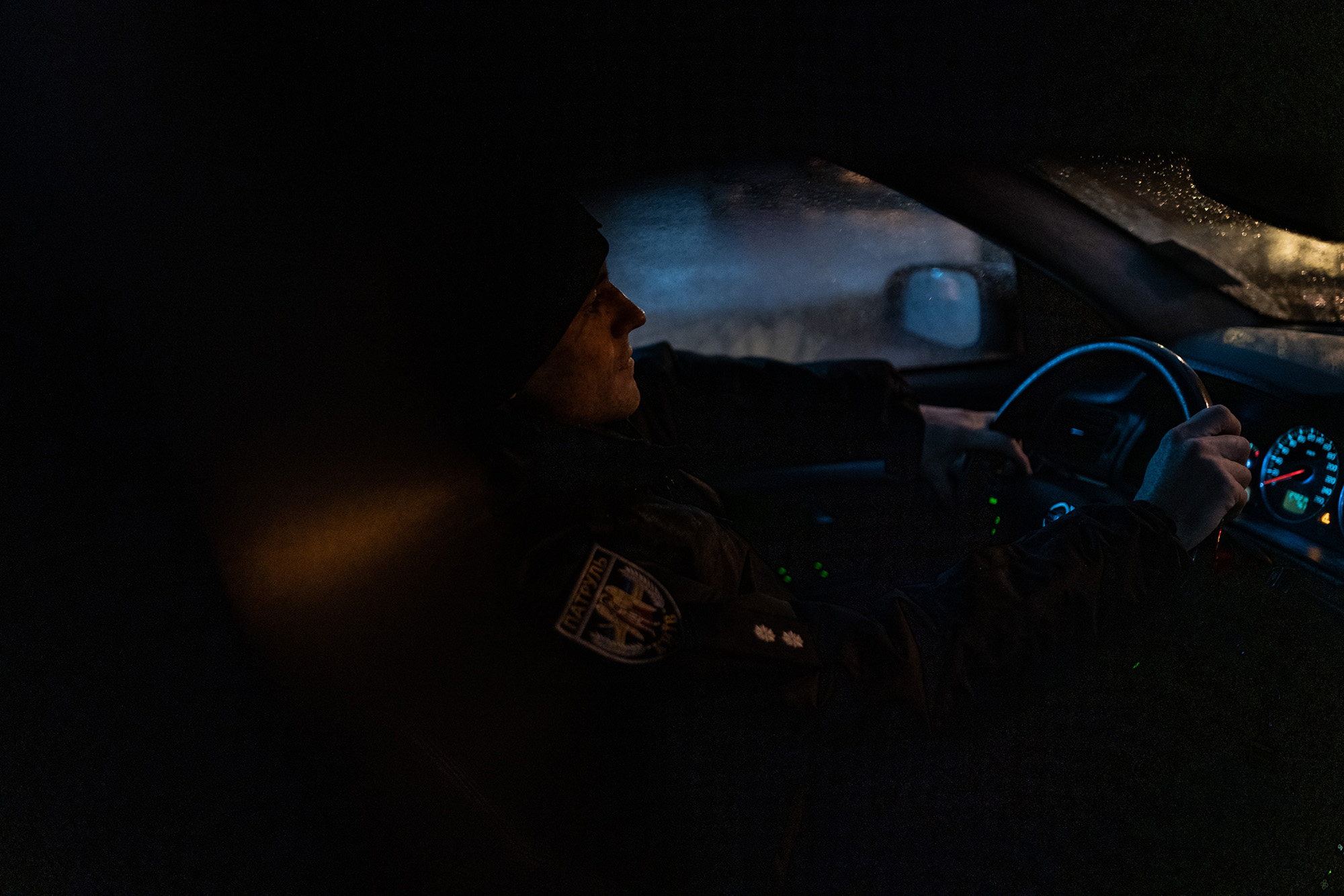
“She must be somewhere in the café, let’s go,” one of the patrol officers tells his partner and gets out of the car.
A confused woman in torn jeans and a grey sweater is waiting for them at the first table as you enter the fast food restaurant. She is holding a two-year-old girl: she is caressing and embracing her—both are dressed too lightly for the autumn weather.
“Good evening! Patrol officer Ivan Yankovyi. How may we help you?” the police officer asks.
The woman nods and smiles gently. And then she admits that she never thought she could end up in such a situation. She says just a few months ago her life was relatively peaceful: she worked part-time online and rented a cheap flat near the same shopping mall with her daughter.
“In the fall the woman was not paid for her work,” patrol officer Yankovy continues the story. “The landlord let her off the first unpaid month, but at the beginning of the second he apologized and asked her to move out. The single mother had only one suitcase and a travel bag. She collected her possessions, went to a café and in despair decided to call 102.”
The dispatchers diverted an unusual call with a request for help to Ivan Yankovyi’s colleague—patrol officer Yevhen Hrydin. The man found on the internet the contacts of volunteers who take care of women in a difficult situation: he contacted them and asked if they could help.
“A volunteer named Vira responded and said that she would find a place for the woman, but it would take some time—she had to call us back. But when she was about to call back it turned out that Yevhen had called her from a hidden number. She wasn’t lost though and called 102: she explained that she was calling from Zhytomyr, but at the request of a patrol officer from Kyiv she found a place for the woman in Vinnytsia, and now she needed to contact them and help her get there. So my team was given the task, so to speak, to finish the job and help the mother and child get on the train.”
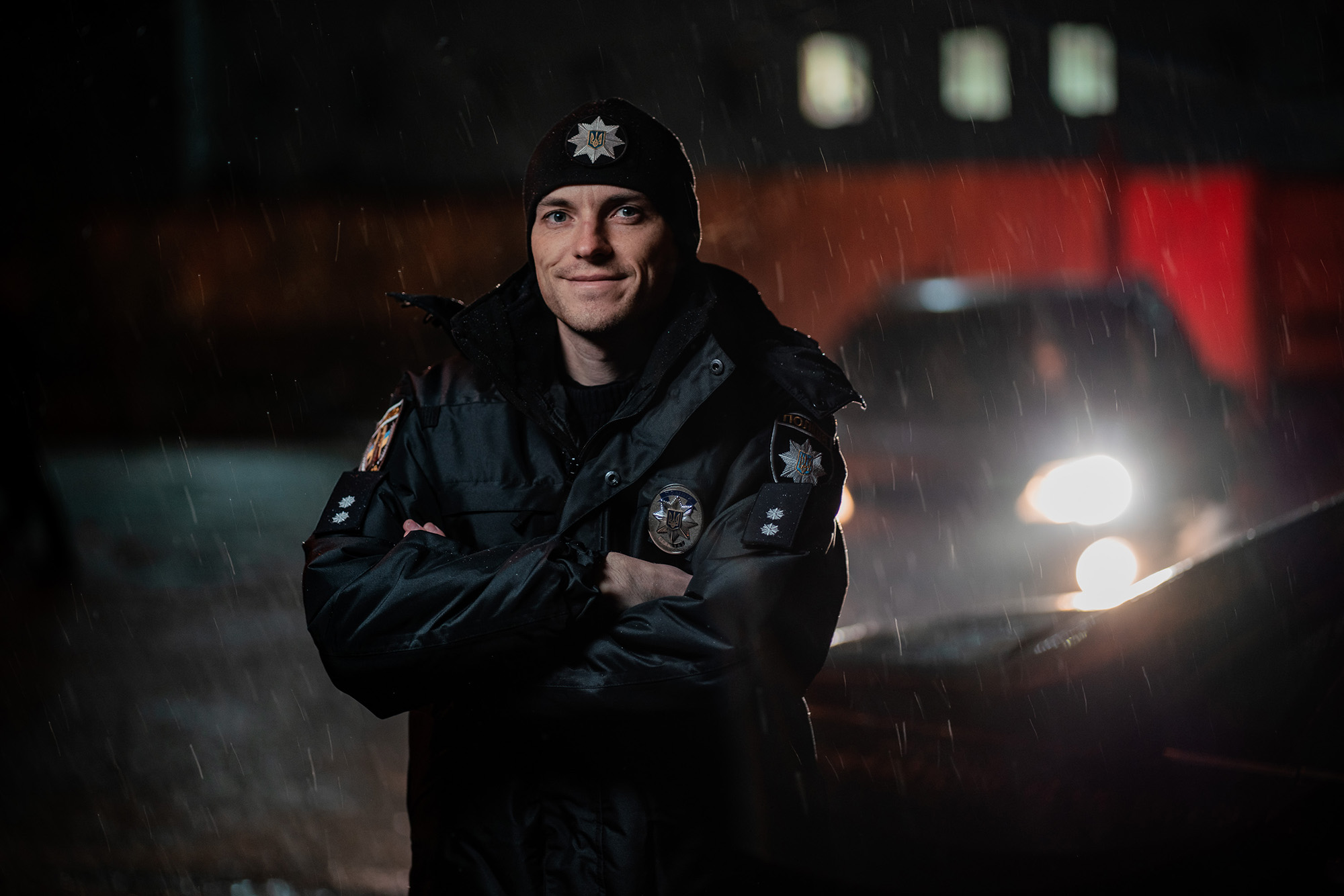
While volunteers were transferring money to the woman for a taxi and mobile phone, another patrol officer, Vitaliy Kozoriz, bought her a ticket to Vinnytsia. Meanwhile, Yankovyi and his partner supported her, acting “according to the protocol”—they asked if she had any relatives or close people who could help her. And the woman answered: “I am an orphan. I have no one but my daughter.”
“In the end, we took the woman and child to the station, and got her on the train,” sums up the patrol officer. “In a few hours they were in Vinnytsia: called a taxi, and got to the help center. I do not consider my own actions or the actions of my colleagues to be heroic. Reaching out to help is what makes us human.”
Ivanivna
There were two of them left—Taras Kostanchuk, code name Bishut, and a soldier named Yevhen, code name Nikitos. On August 19, 2014, during the retreat of the Donbas Battalion from the center of Ilovaisk, both suffered concussion and bullet wounds: Nikitos was shot in the knee, and Bishut was saved by his helmet—the bullet ricocheted, cracked his skull, but did not reach his brain. Although the fight for Ilovaisk was still ongoing, Bishut and Nikitos found themselves surrounded—the city center was completely controlled by militants.
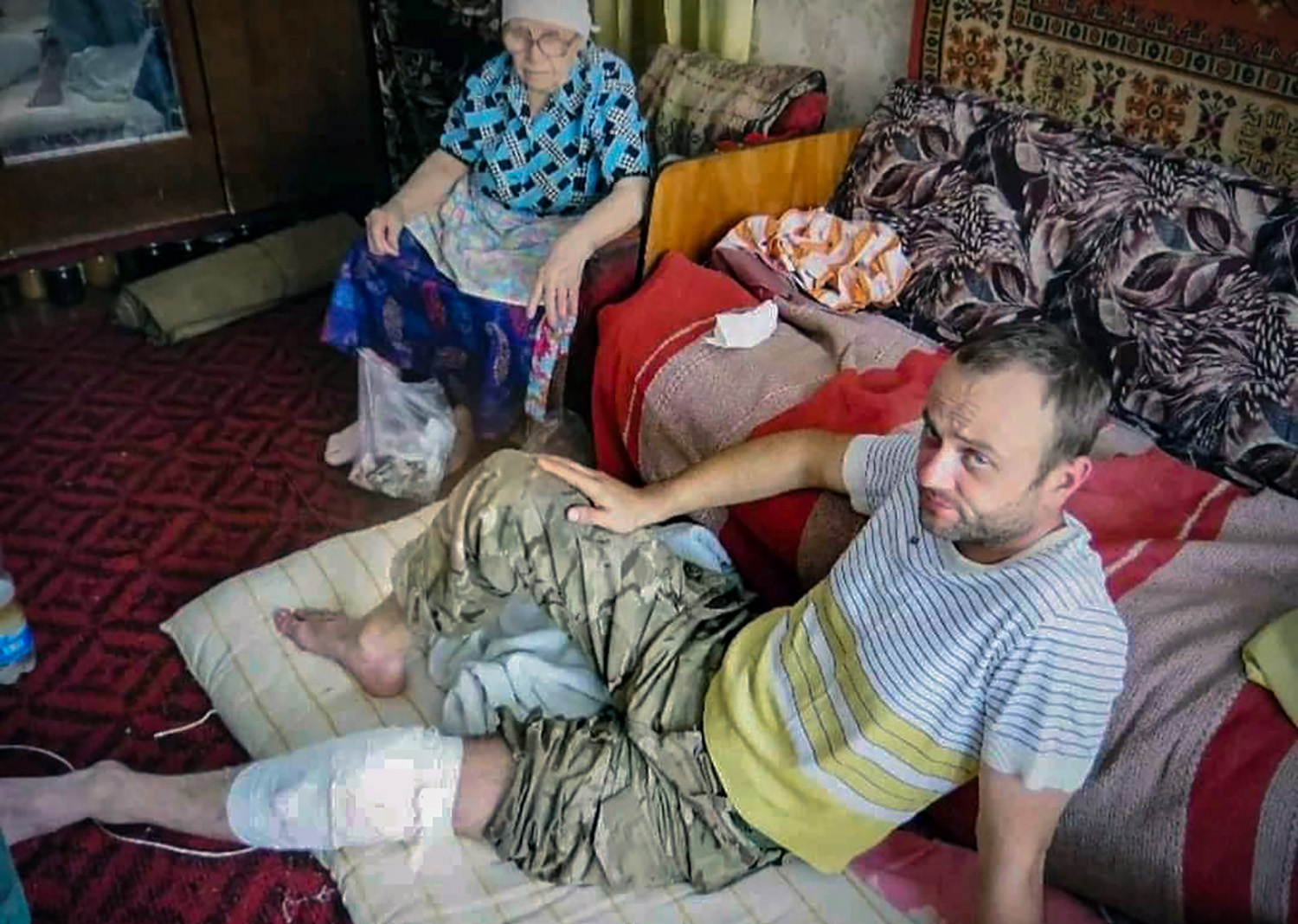
“We grabbed each other and ran into the nearest entrance of one of the apartment blocks,” Kostanchuk recalls six years later. “We climbed up to the second floor, noticed a door that could be easily opened, and broke into the apartment. I laid down on the sofa and Nikitos sat down on the floor. We were hiding.”
Acubarotrauma, as the doctors call the concussion, made the ears of the military men ring, and their heads split with pain. 90-year-old Klavdia Ivanivna eventually found them covered in blood and confused in the middle of her own bedroom. The woman did not have the strength to go down to the basement every time, so she would hide from massive shelling in her bathroom.
“Who’s there?” she asked in Russian, as she stepped out of her “shelter.”
“Ukrainian military,” they answered in unison. “We will do you no harm. We need your help.”
Deafish, wearing glasses with thick lenses, the resident of Ilovaisk was aged but still had a sharp mind. At first she looked at the soldiers in confusion, and then quickly began to treat Bishut and Nikitos’ wounds. She washed them, and applied bandages with her old, weary hands, all the time smiling and talking as if to old acquaintances about the benefits of bad hearing. Because she could not hear the shootings and explosions much.
“Don’t worry, boys,” she kept saying. “I was a nurse during WWII, I know a little bit about medicine. I will fix you up and you will be as good as new.”
More than half a century ago, when she was still young, Klavdia Ivanivna was hiding another military man in her house. More precisely, one SS deserter, who really wanted to live. And now, burdened by old age, she was sitting in a shabby chair, worrying that militants would break into her apartment to carry out a search.
“She was hiding us, literally under the threat of death,” Bishut says. “If they had come and searched her apartment, the old woman would have been killed along with us. Wounded, in the very center of the occupied town, and near the checkpoint with Kadyrov’s paid mercenaries, we survived as a result of fate and the efforts of Ivanivna. And her neighbor, who also helped us, as well as Donetsk patriots.”
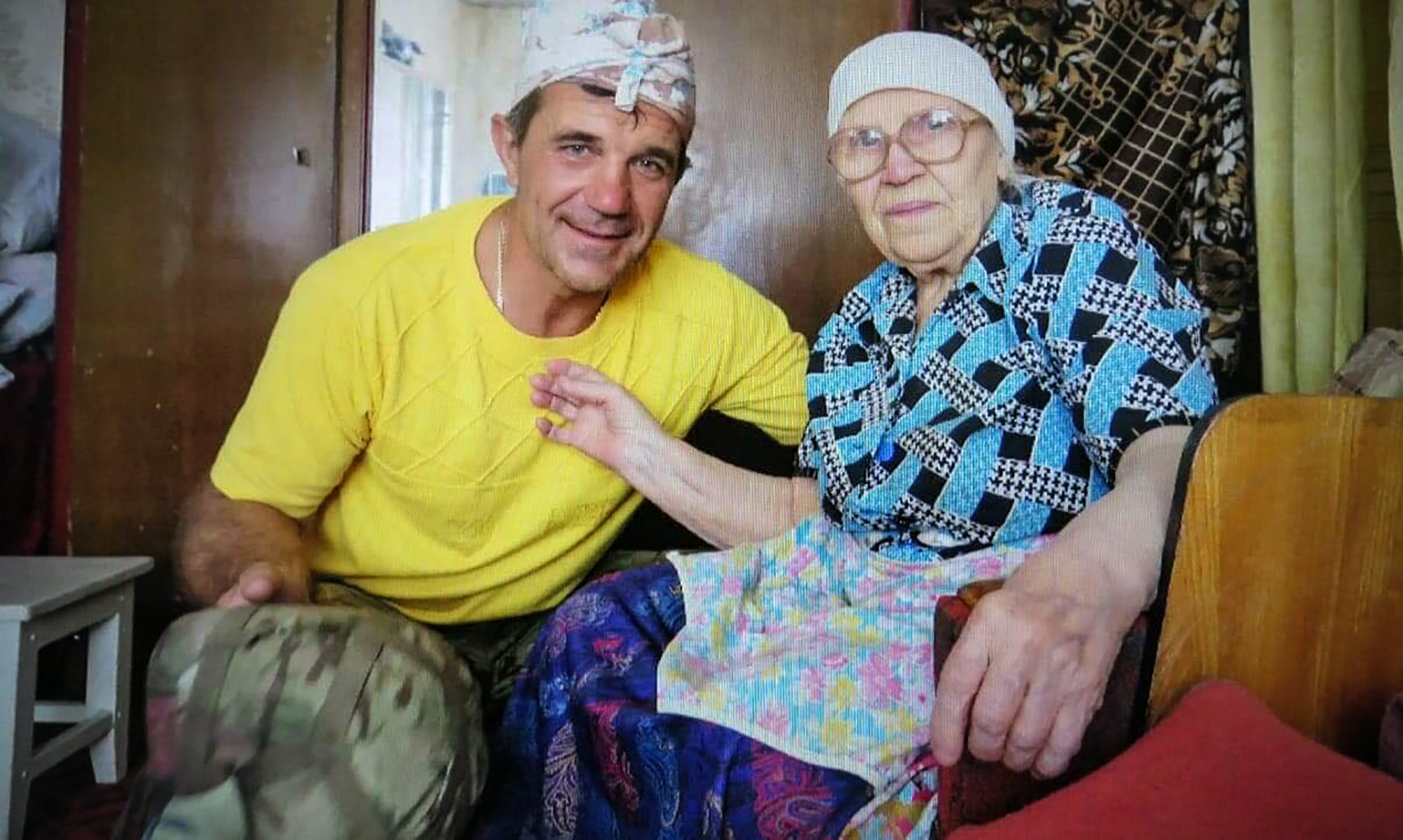
Bishut and Nikitos were locals, as were a significant number of Donbas fighters who joined the battalion in 2014. Yet, it was too risky to leave by footpath and without documents, so the military men used old connections and contacted the Ukrainian underground in the occupied Donetsk region. Donetsk agents provided fake passports to soldiers, and the two men invented legends and left Ilovaysk through militant checkpoints.
“Nikitos left two weeks later, I a week after that. We were led out by one of the local patriots. I crossed the checkpoint unshaven, reeking of booze, wearing crumpled clothes and a cap covering the wound. I was carrying a work bag containing glass cutting tools to make out that I was a regular repairman. And Nikitos had an iodine mesh applied to his leg before he left—when he was stopped at the checkpoint, as we expected, he said that he was fixing broken windows in the town, a piece of the frame fell on his leg, and it swelled up—you see, iodine mesh. Fortunately, no one demanded that he pull his pants up to his knees. Luck was on our side again.”
Realizing that they would probably never see Ivanivna again, Bishut and Nikitos, despite the risk, took a picture with their rescuer. In order to somehow thank the woman who saved their lives, after leaving Ilovaisk, the fighters provided food and medicine to Ivanivna in the occupied territory through the same connections. They decided to publish the unique photos and reveal the name of their rescuer only in 2020—a year after the death of Klavdia Ivanivna. The human who helped them.
[This story was created with support of the Royal Norwegian Embassy in Ukraine. The views and opinions expressed in this publication are those of the authors and do not necessarily reflect the official position of the Norwegian government.]
Have read to the end! What's next?
Next is a small request.
Building media in Ukraine is not an easy task. It requires special experience, knowledge and special resources. Literary reportage is also one of the most expensive genres of journalism. That's why we need your support.
We have no investors or "friendly politicians" - we’ve always been independent. The only dependence we would like to have is dependence on educated and caring readers. We invite you to support us on Patreon, so we could create more valuable things with your help.
Reports119
More